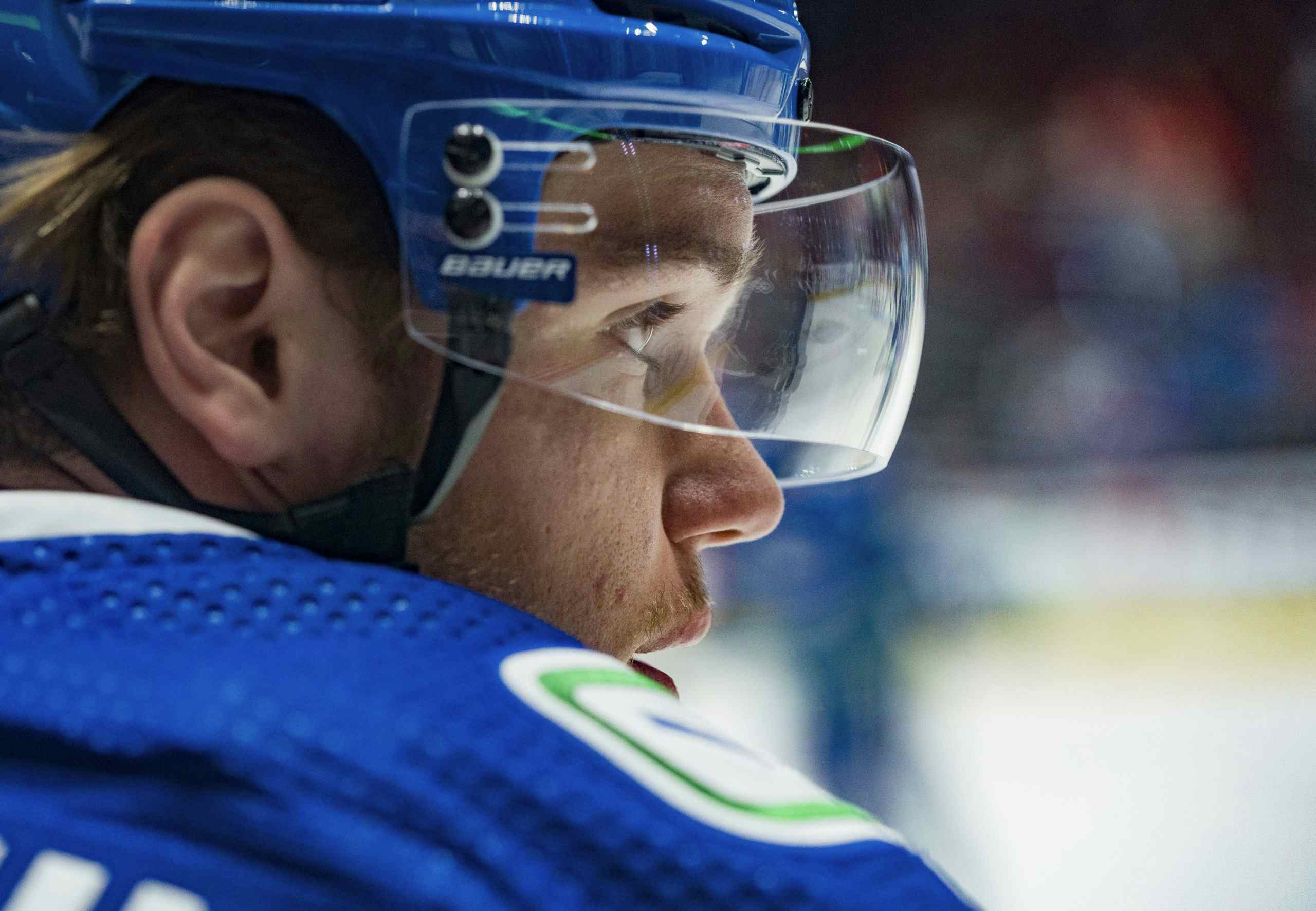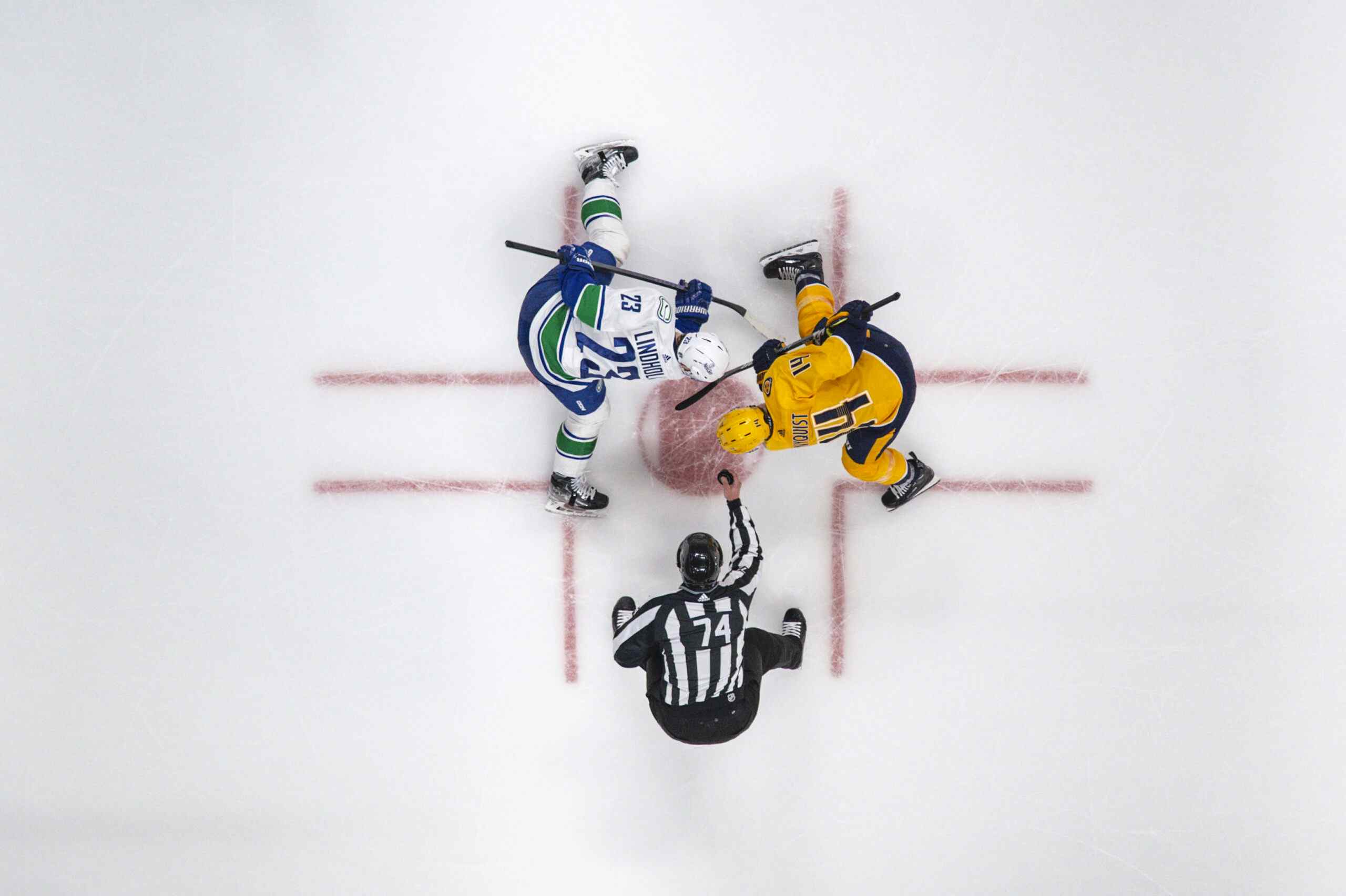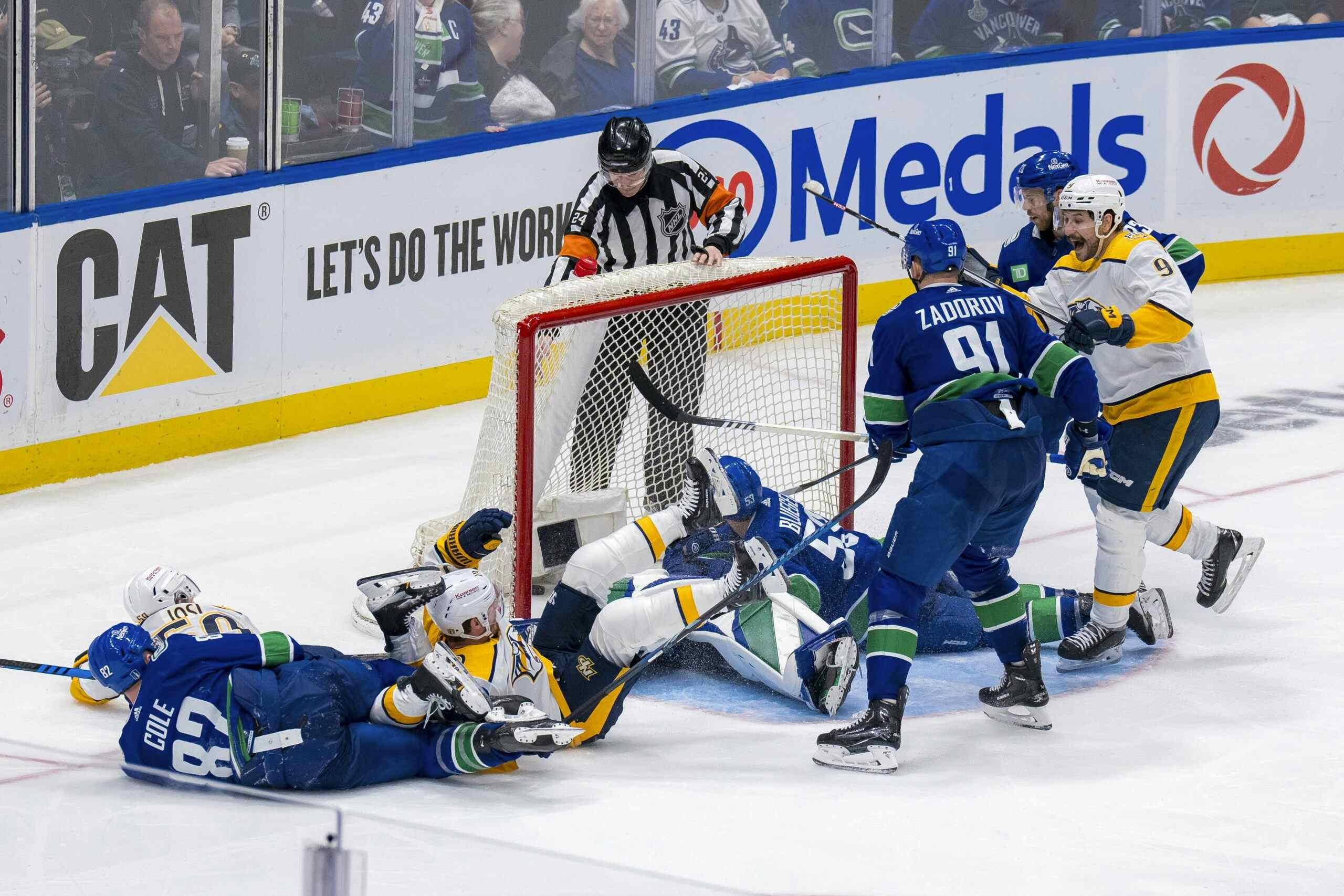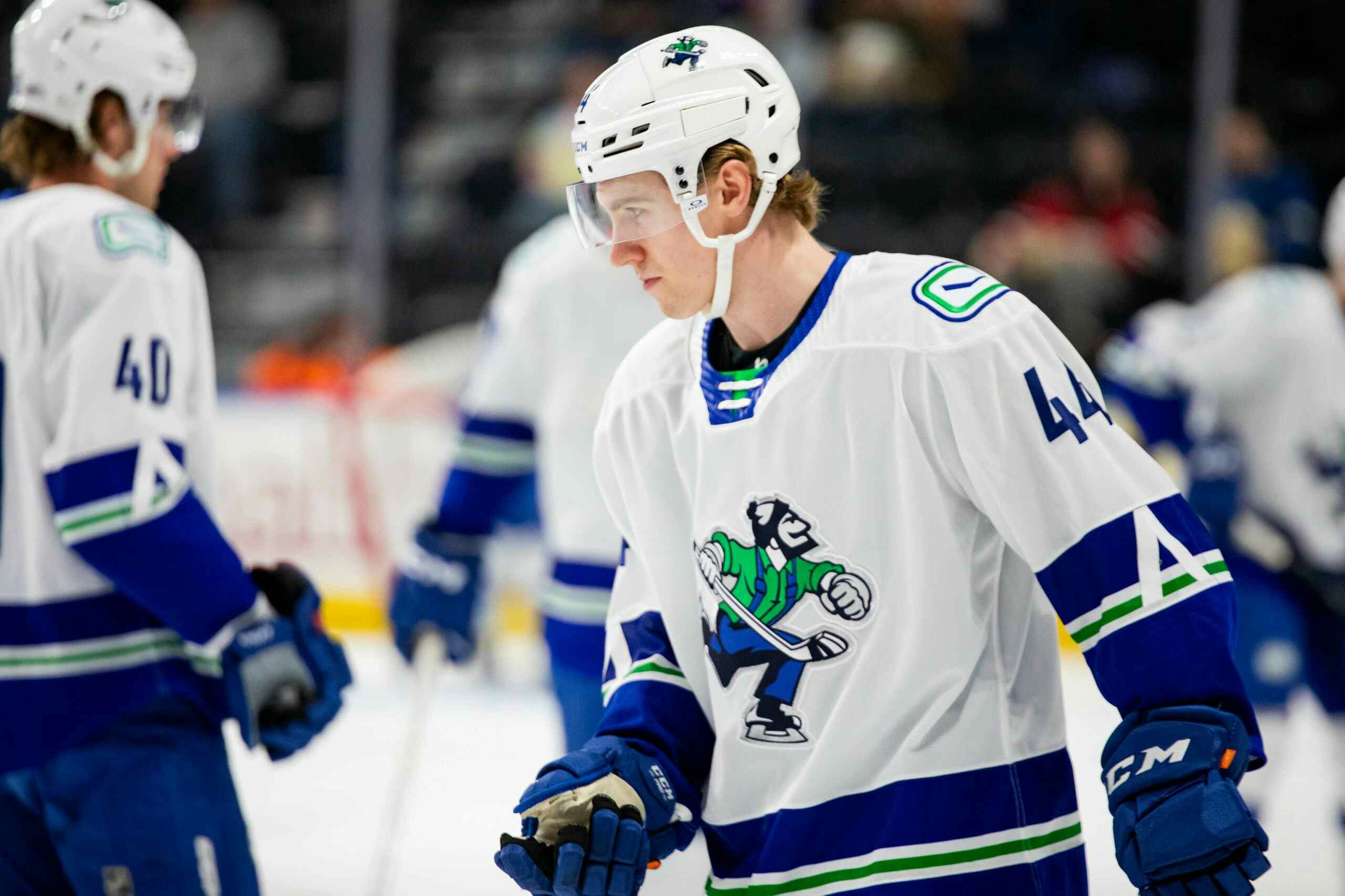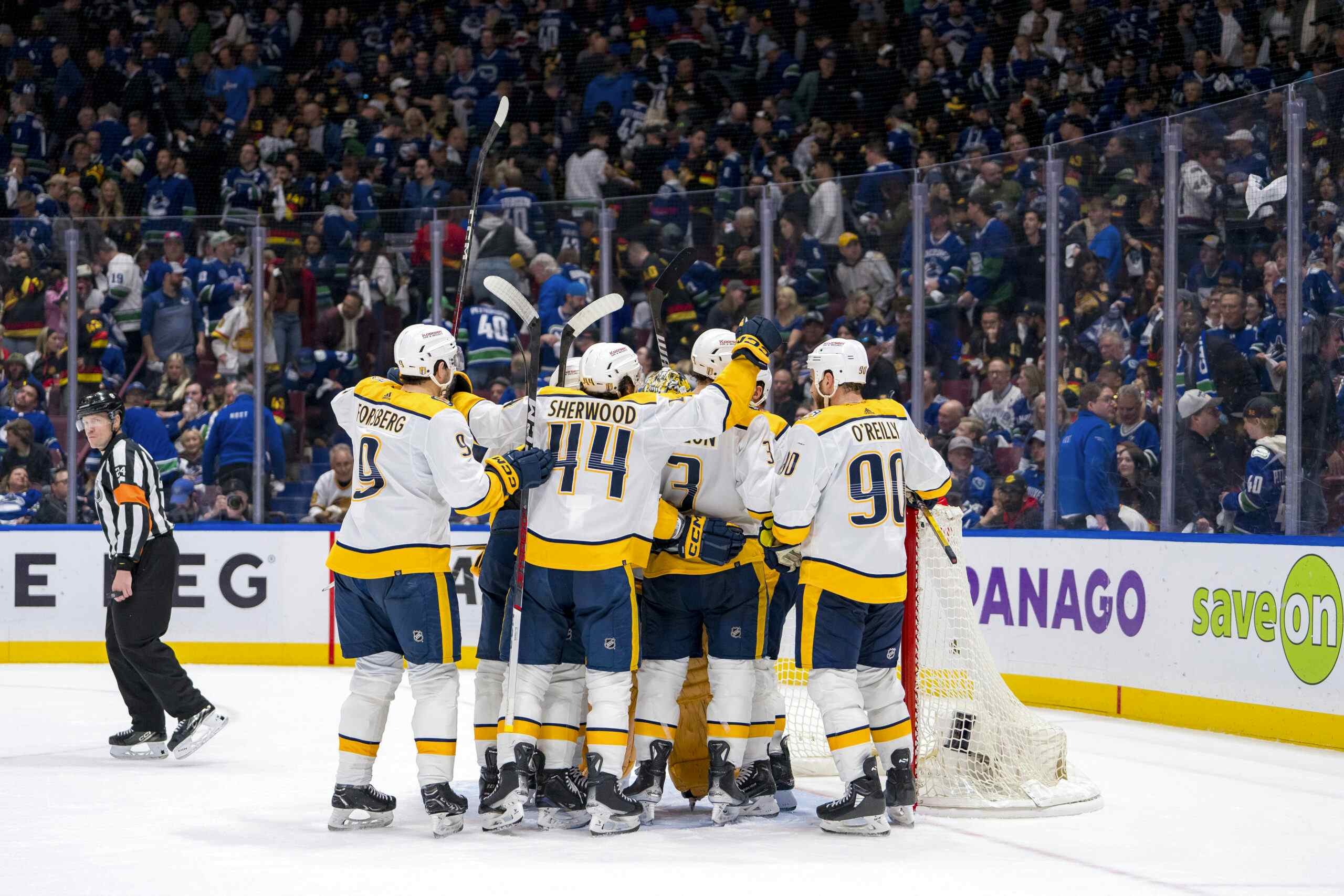Summer Thoughts: Where are the goals going to come from?
By Rhys Jessop
8 years agoSo far this offseason, we’ve had a ton of questions surrounding the state of the Canucks. We’ve wondered about their drafting, we’ve wondered about their trading, we’ve wondered about their front office, and we’ve wondered about the overall direction of the franchise. All this is big picture stuff that will have a huge effect on the team’s long-term future, but the short term future of this franchise bears some examination too.
Going into the 2015-16 season, we have a pretty good idea of what the Canucks are going to look like, so we can wonder about how this team will do when the first puck drops in October. And, of course, we’ll have questions we’ll want answered. We always do.
Today’s question: just who is going to score the goals next year?
If you’re just going through NHL.com and looking at the team goal leaders from last season, you may be tempted to conclude that if the Vancouver Canucks had a weakness, it wouldn’t have been goal scoring. The club’s 2.88 goals per game in all situations last season ranked 8th in the entire NHL, well ahead of teams with much more firepower on paper, such as Chicago, Pittsburgh, or Anaheim. However, a bit of cursory digging reveals that this rather solid rank was largely a mirage.
Vancouver scored 21 empty net goals last season, which is easily the largest single-season total in the NHL’s online database. While ENG’s are nice since they help close out games, a) we care far more about what happens in the 59 minutes prior to get the game to that point, and b) though increased aggression with goalie pulling may cause an inflation in overall league ENG numbers into the future, we can’t extrapolate this trend based on one season of data, so we have to say that Vancouver’s 5v6 performance is at least partially an outlier that we can’t expect to fully repeat.
Taking Vancouver’s ridiculous empty net goal scoring out of the equation and focusing on the team’s ability to manufacture goals in certain situations, we see that the Canucks were an average 5-on-5 goal scoring team (2.3 5v5 GoalsFor/60), and above average with a 5-on-4 powerplay (6.6 5v4 GoalsFor/60). Overall, neither mark is too bad. Vancouver had more problems with defense and coupled this with a very poor 5v5 performance from Ryan Miller last season, which led to a bottom-10 5v5 GoalsFor Percentage.
The concern going in to 2015-16 is that a big chunk of this goal scoring in the most critical portions of the game is going to dry up because the Canucks have let their most efficient goal scorers walk for literally nothing this offseason.
Zack Kassian wasn’t close to strong on the defensive side of the puck, but at 1.10 G/60 last season, he was Vancouver’s most efficient goal scorer at even strength. Second? Shawn Matthias at 1.08 G/60. Matthias walked to Toronto for nothing, and Jim Benning picked up Brandon Prust to replace Kassian.
While Prust may help kill some penalties, he was also one of the very worst goal scorers in the entire NHL last year, tallying a paltry 0.27 Goals/60. Some of this was percentage-driven and will improve, but even doubling his per-minute output will still make Prust a 3rd or 4th line-calibre scorer trying to replace two guys who individually scored at an above first line efficiency.
Bo Horvat was the team’s 3rd most efficient goal scorer at 0.97 Goals/60, but it’s likely he takes a significant step back in this regard even if he shows improvements in all aspects of his game. Horvat shot nearly 15% at 5v5 last season, which would put him close to Steven Stamkos and Corey Perry in terms of finishing talent if Horvat were to sustain that shooting percentage over a significant amount of shots.
If we accept that Horvat is an above average finisher that will shoot at around 9% in the long run (which, honestly, is a fairly generous assumption), he’d need to increase his individual shot rate from 6.5 Shots/60 to roughly 10.9 Shots/60 to match his goal scoring efficiency from his rookie year. In other words, Horvat would need to become an elite volume shooter – along the lines of Alex Ovechkin or Max Pacioretty or Rick Nash or Tyler Seguin – literally overnight. This simply isn’t a remotely realistic expectation. Horvat will probably get better this season, but it almost assuredly will not be reflected in his per minute goal scoring numbers.
After these guys, age starts to become a concern for the rest of Vancouver. Radim Vrbata had the third best season of his career last year, but he’s 34, nearly doubled his goals per minute output over the year prior, and has traditionally been a below average finisher at even strength. We can likely still count on the Sedins to keep Vrbata’s shot rate high and set him up for a couple more quality chances than he’d normally get, but unless he goes on a shooting percentage bender, he’s likely going to get a little worse.
The same goes for Alex Burrows, who returned from PDO hell under John Tortorella to post a very solid 0.81 Goals/60 under Willie Desjardins. We can still expect good second-line calibre goal numbers from him, but he’s also on the wrong side of the hill.
And this is to say nothing of the Sedins now, who just aren’t first-line calibre finishers anymore:


Though both can still generate offense at a very slightly below average first line rate at even strength, their declining ability to put pucks in the net themselves is inarguable. Daniel especially has suffered in recent years, falling off a cliff in terms of his personal shooting percentage. Formerly one of the NHL’s deadliest goal scorers, Daniel’s 5v5 Goals/60 has been dropping for six consecutive seasons – a worrying but predictable trend for a player who will be 35 when the next season starts.
Chris Higgins could potentially see a shooting percentage improvement, but he’s also on the wrong side of 30, so decay in other areas of his game is more likely than not. Jannik Hansen, unless with the Sedins, is an alright 3rd line rate scorer on his own, but he’s not close to out-performing his role like Shawn Matthias did. Vancouver got next to nothing from Derek Dorsett or Linden Vey last season either (both were in the bottom-25 rate scorers in the NHL last year) and barring massive and rapid improvements from the still-young Vey, there’s no real reason to expect significant improvement here either.
The powerplay should still be alright given that veteran players tend to see their 5v4 results persist for longer into their careers than their 5v5 results, but with the Sedins and Vrbata as the key cogs, decline is inevitable there too. A full year of Yannick Weber could help, but we’d also have to point out that the Sedins saw an on-ice shooting percentage spike with the man advantage last season that’s above and beyond what we can expect to be sustainable.
A better setup that works the puck low instead of feeding Jason Garrison for a hopeless long bomb should be able to sustain a shooting percentage higher than the unsustainably low 8.5% they saw under John Tortorella, but the 16.2% clip they fired at under Desjardins is just as likely to regress through a combination of personnel decline, opponent adjustments, and luck just running out.
If the publicly stated goal of making the playoffs is the actual goal of the organization and not just some feel-good PR spin, then Vancouver is really in a bad place offensively going in to next season. Their core offensive contributors are more probable than not to take a step back, their depth scorers have been gutted through trades, cap mismanagement, and free agency, their best and most promising young player is likely to regress himself, and it doesn’t appear like the team will be able to clear enough cap space to bring in some free agent help, if there’s even any left on the market.
Nick Bonino looks like the best bet to continue out-perfoming his role in terms of individual goal scoring, but him aside, how is this team going to manufacture enough goals? From where we’re sitting here on July 7th, the best plan looks like blind hope. Hope that the Sedins give you another year. Hope that Radim Vrbata’s career season at 33 wasn’t a fluke. Hope Bo Horvat becomes Patrice Bergeron and scores 60 points at 20 years old. Hope that Sven Baertschi shows unprecedented growth and evolves into a great second liner. Hope that Higgins and Hansen still have gas in the tank. Hope, or else the team won’t be close to a playoff spot.
I mean, it’s not as if we have another choice.
Recent articles from Rhys Jessop

